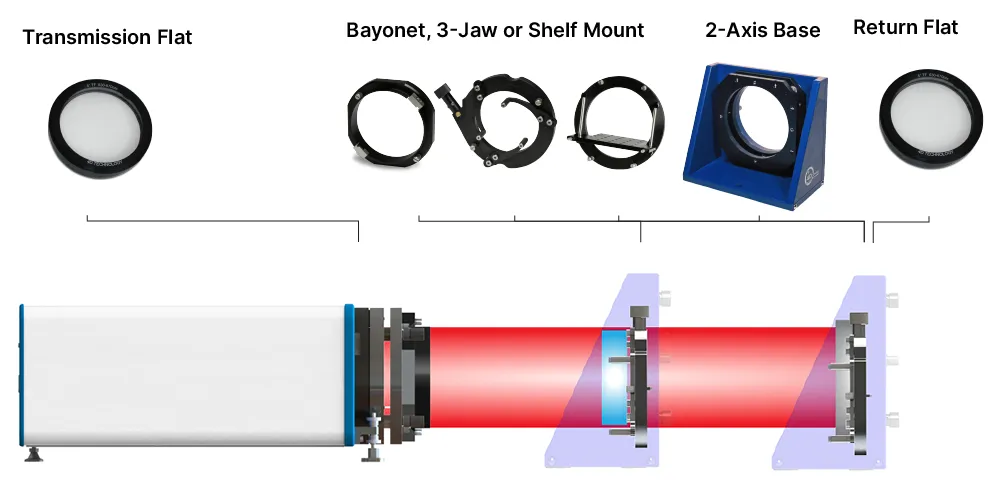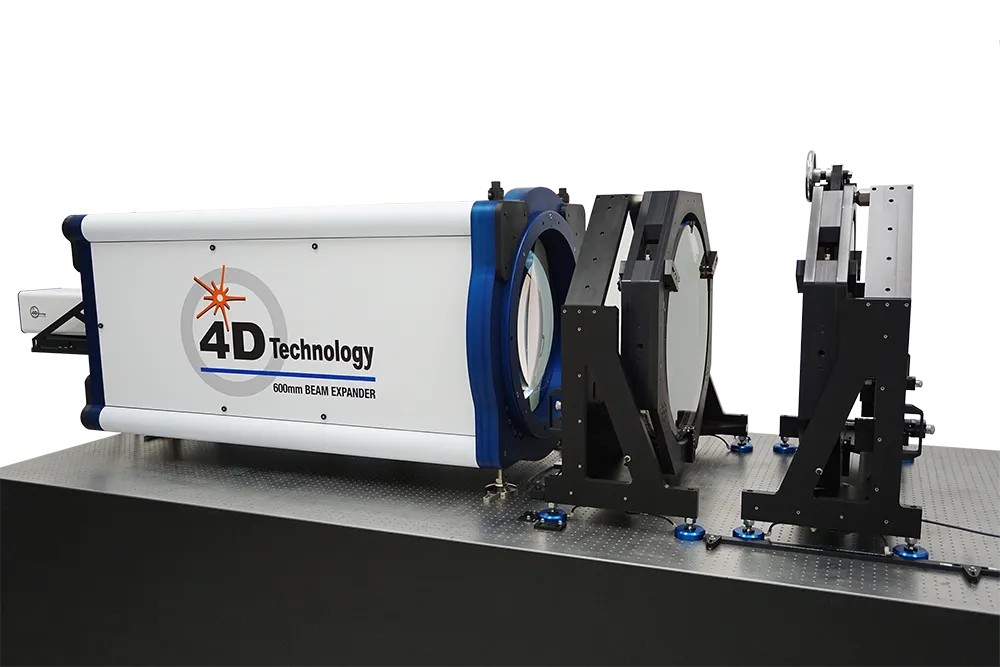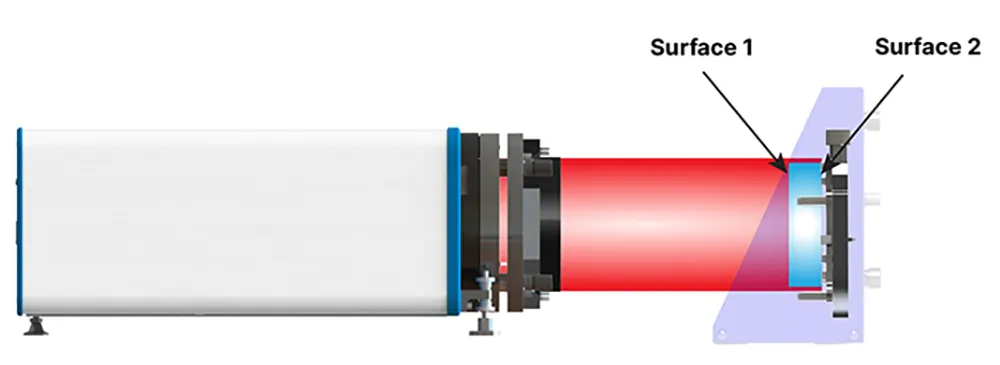Transmitted Wavefront Error of Plano Optics
Optical Setups
Overview
Measuring the transmitted wavefront error (TWE) of flat optics such as windows, reticles, and filter substrates is typically completed with a laser interferometer. The diagram below shows a typical setup using a Fizeau Interferometer, though testing can also be completed with a short coherence Fizeau Interferometer or a Twyman-Green interferometer.
RECOMMENDED METHOD
Measuring TWE with a Fizeau Interferometer

Standard setup for measuring the transmitted wavefront error of a plano optic.
An interferometer with a HeNe laser source can often be used to measure surface quality. However, depending on the optical coatings and/or application, it may be important to test TWE using an interferometer with a laser source close to the optic’s functional wavelength.
Required Equipment

| Required Components | |
| AccuFiz Interferometer | More Information |
| Transmission Flat | Specifications |
| 2-Axis Base with Tip/Tilt | Specifications |
| Bayonet, 3-Jaw or Shelf Mount | Specifications |
| Return Flat | Specifications |
Other Considerations
Measuring Larger Optics
A beam expander enables measurement of flat optics larger than the instrument aperture. Beam expanders up to 600 mm are available for AccuFiz interferometers. The expanders include kinematic mounting which enables the instrument to be removed from the expander, used separately for smaller setups, then returned to the larger setup without realignment.

An AccuFiz 100 mm aperture interferometer (left) used with a 600 mm beam expander and motorized, large optic mounts.
Measuring in Vibration
With a traditional, phase-shifting interferometer, measurement data is acquired sequentially—a long enough process that vibration and air turbulence will degrade or even prevent measurement. The interferometer and all mounts must be situated on an air table to isolate the system from vibration. Air isolation can be expensive—prohibitively expensive for very large optics or long measurement paths.
4D AccuFiz interferometers feature optional Dynamic Interferometry®, which enables all measurement data to be acquired simultaneously. Vibration is no longer an issue, and an isolation table is not needed.
ALTERNATE METHOD
Measuring TWE with a Short Coherence Fizeau Interferometer
The setup above can also be used to measure plano TWE with a short coherence Fizeau. However, a dynamic short coherence system can also be used to measure a “remote cavity,” in which the front and back surfaces of the optic serve as the reference and test surfaces. One advantage of this setup is that any error due to air turbulence is effectively eliminated. Another advantage is that no additional reference optics are required, which can represent a substantial cost savings. The path matching distance should be set to the nominal optical thickness of the component (i.e., the physical thickness x the index of refraction).

ALTERNATE METHOD
Measuring TWE with a Twyman-Green Interferometer
A Twyman-Green interferometer can also be used to measure plano TWE. The test optic must be smaller in diameter than the test beam, but a beam expander can be used to increase the size of the test beam. A high quality return optic and mount completes the setup.
Need Assistance with Measuring Transmitted Wavefront Error?
Contact our applications staff today for expert opinions on optical measurement and on measurement equipment.
Get In Touch
(520) 294-5600
Location
3280 E Hemisphere Loop, Ste 146
Tucson, AZ 85706
4Dinfo@ontoinnovation.com
Office Hours (Arizona Time)
Mon: 8am - 5pm
Tue: 8am - 5pm
Wed: 8am - 5pm
Thur: 8am - 5pm
Fri: 8am - 5pm
Sat: Closed
Sun: Closed
